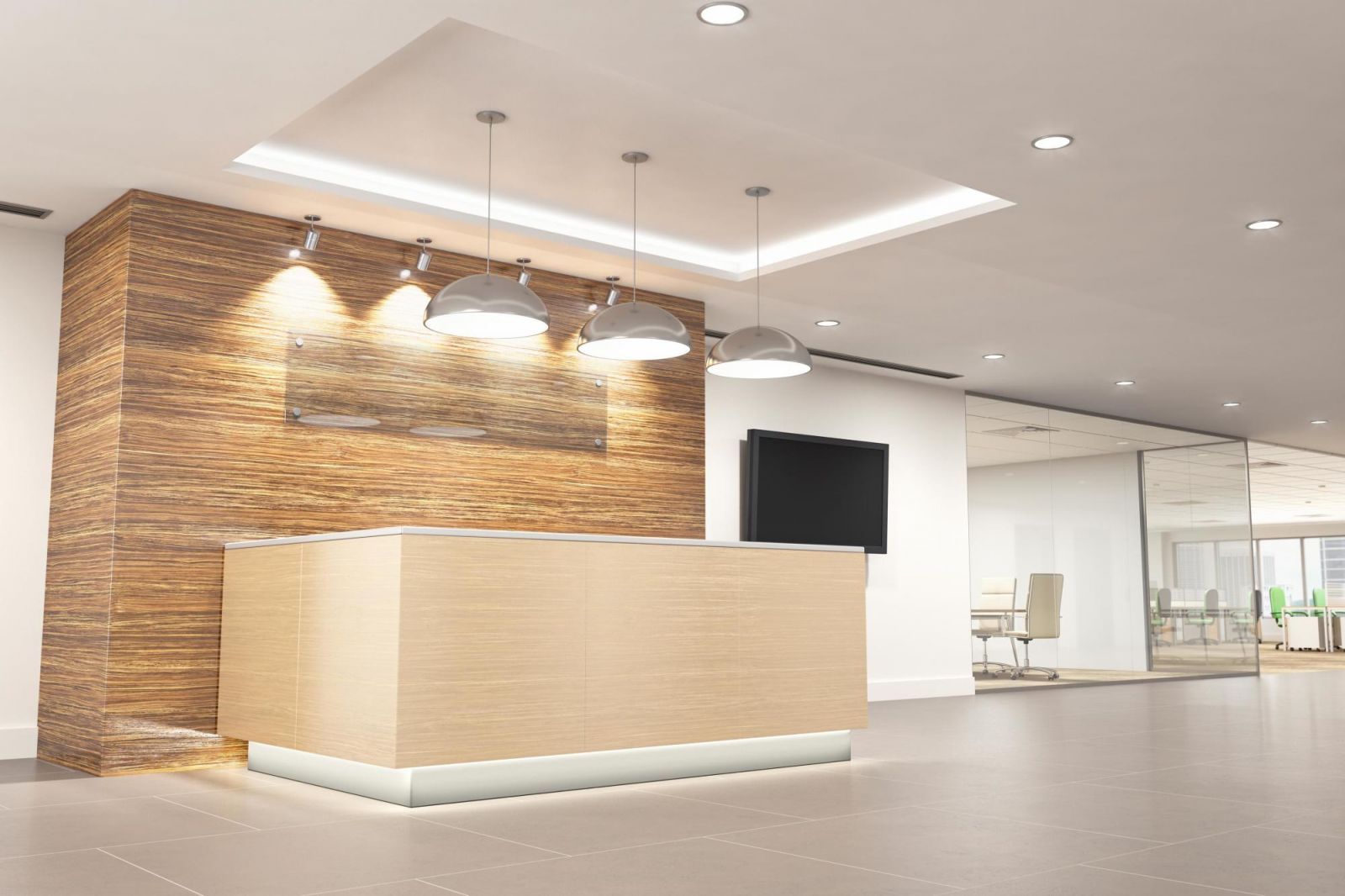24 June 2021 | Updated 06 August 2021
Investment in technology will be essential to allow commercial property owners to reach UK 2050 net-zero emission goals, according to PropTech experts.
The built environment contributes 40 per cent of the UK’s carbon footprint, while 80 per cent of buildings that will be in use by 2050 have already been constructed.
Dr. Adam Case, Technical Director at technologywithin, a provider of technology for the flexible workspace and CRE sector, argues that improving the sustainability of existing buildings should be a crucial part of "Building Back Better" from the pandemic, but that this will be impossible without effective tech investment.
After completing a PhD in Pure Mathematics at Southampton University, Dr. Case founded Stickman Technology in 2002. It was here that he developed his passion for developing products for the managed workspace sector. He leads all client implementation projects and is responsible for technologywithin's installation and first and second-line support teams.
"Sustainability is on the business agenda as never before – and increasingly this informs what companies expect of their workspace. It should therefore matter greatly to landlords that, as of 2020, the majority of the workforce are millennials, 75 per cent of whom would prefer to deal with a more sustainable business even it if meant incurring financial loss. Landlords should align themselves with these environmentally conscious values to ensure they appeal to the present and future generations of occupiers."
Technology More Than Just a “Nice-to-Have” for Property Owners
With the 2050 deadline for the UK’s net-zero emissions goals getting ever closer, improving the sustainability of our buildings has become a critical focus for commercial landlords. And with 63 per cent of office workers placing great importance on having an environmentally friendly workplace, tech will be a vital tool in advancing the sustainability commitments that will improve the marketability of landlords’ offerings.
Tech is therefore more than just a “nice-to-have” for leased workspace. Indeed, as tenants rightly increase the pressure to embrace sustainability, landlords will need to prove their spaces’ environmental credentials against ever more established means of assessing eco-friendliness. In this post-pandemic world where sustainability is of the utmost importance, landlords less willing to invest in tech will fail to attract tenants and therefore risk missing out on stronger revenues.
Meeting Tenant Values
Sustainability is on the business agenda as never before – and increasingly this informs what companies expect of their workspace. It should therefore matter greatly to landlords that, as of 2020, the majority of the workforce are millennials, 75 per cent of whom would prefer to deal with a more sustainable business even it if meant incurring financial loss. Landlords should align themselves with these environmentally conscious values to ensure they appeal to the present and future generations of occupiers.
This matters all the more with businesses now more sensitive to the importance of having a workspace which suits workers’ needs. While the pandemic has not prompted the end of office work, experts predict a polarisation between modern spaces and older buildings, which are likely to decline in value. Indeed, while Q1 2021 saw the average rent on new leases increase from the previous quarter, this went hand-in-hand with a heavy bias towards ‘grade A’ offices. Evidently, businesses are not settling for second-best, so landlords should invest to stay at the cutting edge of the market.
Saving Energy and Money
Using tech to improve the sustainability of their spaces will also benefit landlords by saving them money hitherto spent on excess energy. While 40 per cent of the UK’s carbon footprint is produced by our built environment on average, in cities such as London, as much as 78 per cent of CO2 emissions come from buildings. However, tech-enabled energy efficiency will help reduce buildings’ burden on the environment, while also helping to keep costs low and make workspaces more appealing to tenants.
Internet of Things (IoT) tech can help create smart spaces, where motion sensors can track room occupancy in real time, combining with smart facilities management systems to adjust environmental factors according to occupancy data, and thereby ensuring that energy is only used where it is needed. Similarly, workspace operators can equip their office lights with smart systems capable of “task tuning”, that is, regulating output as per user preference. Each of these measures helps to mitigate unnecessary wastage of energy – and, as an added bonus, reduces energy bills.

Picture: a photograph of a reception office area, with a front desk and several ceiling-mounted lamps
Future-Proofing Assets
Businesses seeking new office space will be prepared to pay for the privilege of enjoying a financially and environmentally cost-effective workspace, so sustainability is set to become an ever greater element in the marketability of space. As occupiers’ emphasis on environmental impact pushes the market towards more formalised means of assessing offices, tech-savvy landlords who are prepared to invest will be rewarded with new opportunities to attain higher yields. In fact, the premium placed on sustainable spaces is already having a tangible impact on asset value, with A- and B-rated buildings on average achieving rents which are 10 per cent higher than those of comparable buildings of a lower rating.
Landlords should also heed the increasing importance of having robust connectivity in their workspace, as workers remain keen to cut down on unnecessary travel to save both their time and the environment. Many companies now prefer to conduct their business over a videoconferencing call, so it is vital that office offerings can support this new means of communication. Without rapid, reliable connectivity, increasingly nomadic occupiers will soon seek other places to work.
Preparedness is Key
Meeting 2050 net-zero goals is clearly of the utmost importance, and with 80 per cent of our built environment for that year already having been built, changes which improve the sustainability credentials of CRE assets are going to have to come from within. Thankfully, solutions are readily available – as are the benefits to landlords. Between increased appeal to tenants, enhanced energy efficiency, and future-proofed returns, landlords have ample incentive to invest in the tech which will help us “Build Back Better” for our environment.
Picture: a photograph of Dr. Adam Case
Article written by Dr. Adam Case | Published 24 June 2021
Share
Related Articles
How Technology and Smart Buildings Will Support the Daunting Retrofit Challenge
How will the intersection of retrofits, smart homes and digitally transformed building maintenance help the UK to achieve net-zero emissions by 2050?
Nik Flytzanis,...
Read Full Article
Disruptive Technologies Named Property Tech Company Of The Year
Disruptive Technologies, the creator of the world’s smallest wireless sensors, has been named the Property Tech Company of the Year at the Global Business Tech...
Read Full Article
What is Industry 5.0 and What Does it Mean for FM?
Felipe Ávila da Costa from Infraspeak shares his insights on how Industry 5.0 is shaping the way we create safe and comfortable environments for...
Read Full Article
Facilio Launches Connected CMMS
Facilio has announced the launch of Connected CMMS, reportedly the only software platform to consolidate all property maintenance, client engagement, vendor management,...
Read Full Article
The University of Birmingham Partners with Siemens to Create the Smartest University Campus in the World
Siemens is partnering with the University of Birmingham to create the world's smartest university campus.
The University of Birmingham, in partnership with...
Read Full Article
Morgan Sindall Launches Machine Learning Software for Maintenance Insights
Morgan Sindall Property Services is to use a machine learning platform to provide social housing landlords and tenants with real-time insights to help them ensure...
Read Full Article
A Landlord’s Guide to EPC Ratings for Commercial Buildings
For commercial real estate landlords, the incoming Minimum Energy Efficiency Standards regulations mean energy-efficient buildings will go from being a “nice to...
Read Full Article
Four Things FMs Need to Know About Minimum Energy Efficiency Standards
What do the Minimum Energy Efficiency Standards mean for commercial property landlords and tenants in the context of a growing drive to improve the energy efficiency...
Read Full Article
Smart Technology Comes to London Docklands Light Railway
PropTech company WeMaintain has signed a contract with KeolisAmey Docklands to supply smart maintenance solutions to all London Docklands Light Railway stations.
The...
Read Full Article
Gothenburg Showcases Award-Winning Green Buildings
Green Gothenburg is inviting its travel-banned visitors to a virtual tour of its award-winning buildings, where the latest innovations in smart technology...
Read Full Article


.gif)
.gif)
.gif)








.png)

.png)
